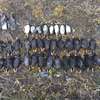
|
Bering Sea, East Coast Alaska, United States

Elizabeth Jenkins, Alaska's Energy Desk - Juneau /
Alaska Public Media /
September 13, 2017
For the third year in a row, seabirds are washing up dead along the coastline in Alaska. Hundreds of birds have been discovered along a stretch of the Bering Sea, on the Pribilof Islands and as far north as Deering. Julia Parrish said the thin bodies of the dead fulmars and shearwaters washing up on shore suggest the birds are struggling to find enough to eat. So far, about 800 have been discovered along the coast of the Bering Sea. Parish said early lab results don’t point to disease. It looks like the birds are starving to death.
Read article
on Alaska Public Media
|
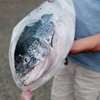
|
French Creek, British Columbia, Canada
 Fisherynation.com
Fisherynation.com /
September 10, 2017
Atlantic salmon, believed to be part of a cohort that escaped from a U.S.-based fish farm on Aug. 19, are being hauled in by anglers fishing out of French Creek on mid-Vancouver Island. Cameron Whe…
Read article
on Fisherynation.com
|
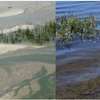
|
Vernon, British Columbia, Canada

Casey Neathway /
LEO Network /
September 7, 2017
Concerns about water safety for human and animal consumption for drinking and for recreation.
Read post on the LEO Network
|

|
Isla San Jerónimo, B.C., Mexico

Alejandra Fabila-Blanco and María Félix-Lizárraga /
LEO Network /
September 9, 2016
Blue-footed booby nesting on San Jeronimo Island.
Read post on the LEO Network
|
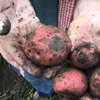
|
Stittsville, Ontario, Canada
 CBC News
CBC News /
September 8, 2017
The head of the Ottawa Food Bank says their ability to provide fresh produce to people in need has taken a hit this summer after a wet and cold growing season stunted production of staple foods like potatoes and carrots.
Read article
on CBC News
|
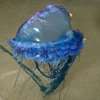
|
Perranporth, England, United Kingdom
 BelfastTelegraph.co.uk
BelfastTelegraph.co.uk /
September 12, 2017
Record numbers of the potentially-fatal Portuguese man o' war have washed up on the Cornish coast, according to conservationists.
Read article
on BelfastTelegraph.co.uk
|
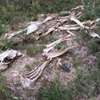
|
 Yle Uutiset
Yle Uutiset /
September 13, 2017
Dozens of moose carcasses were discovered last spring in a Lapland national park, and Finland animal disease watchdog Evira has since determined that the animals died of malnutrition. The reason why they were unable to find sustenance is a mystery, as the area had relatively normal temperatures and snowfall last winter.
Read article
on Yle Uutiset
|
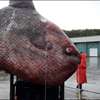
|

The Siberian Times reporter /
Siberian Times /
September 4, 2017
Sea creature known to be the first warm-blooded fish weighed more than a ton.
Read article
on Siberian Times
|